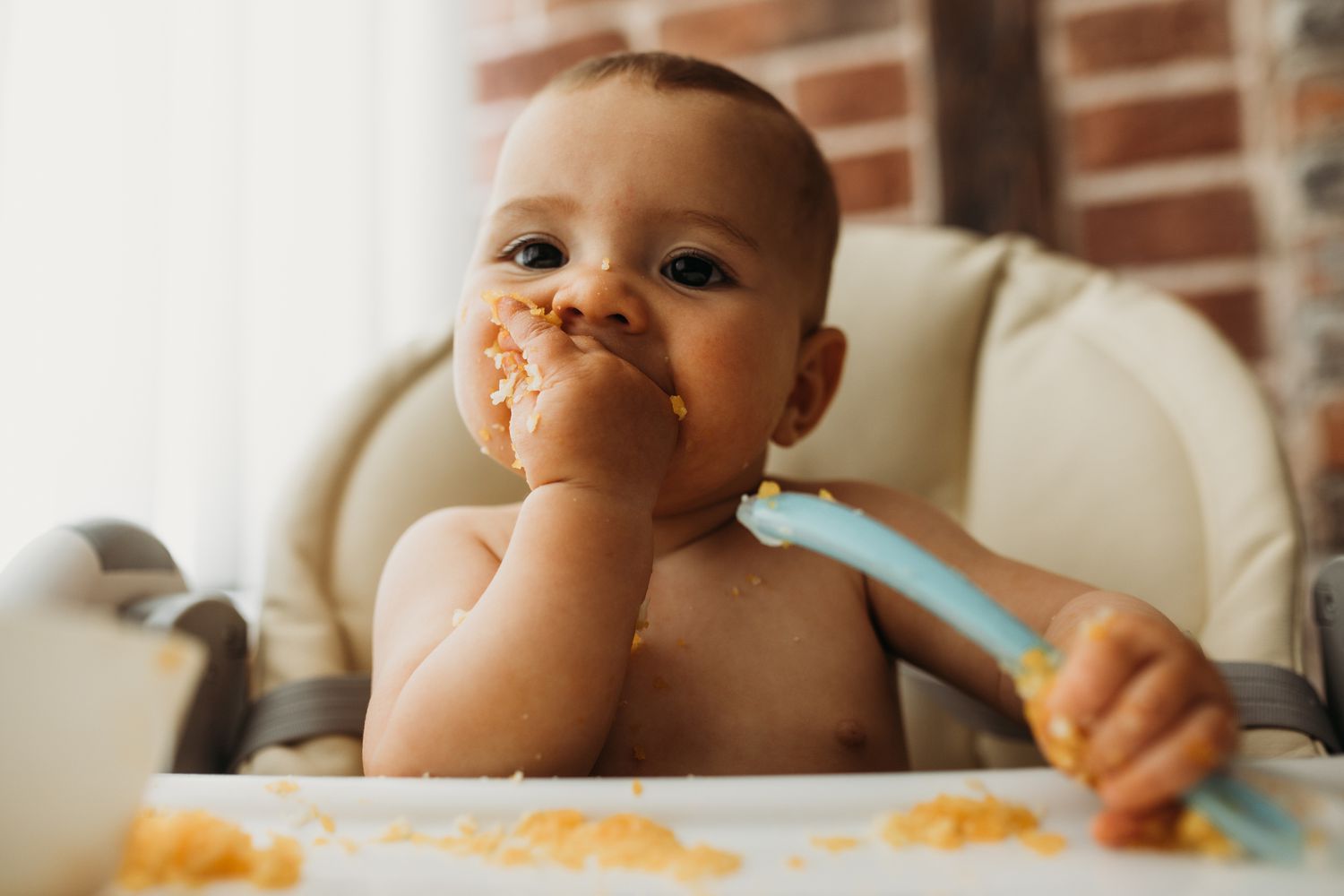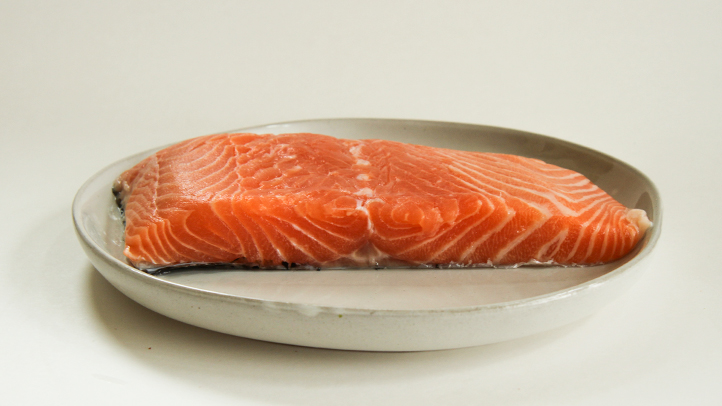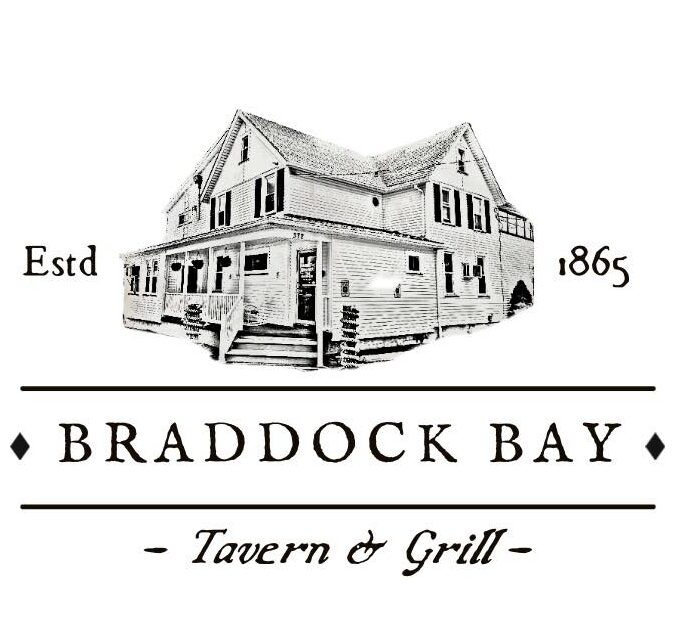Navigating the world of introducing new foods to your baby can be daunting, but the benefits of salmon, a nutritional powerhouse, are clear.
With guidance from registered dietitian Rima Kleiner, we’re diving into the question: Can babies eat salmon? Offering insight on the safety, health benefits, and recommended ways to incorporate this fish into your infant’s diet, this blog post sets you on the path to making informed decisions for your little one’s nutrition needs.
Salmon: A Nutritional Powerhouse for Babies

Salmon is a fantastic addition to a baby’s diet, offering a wealth of benefits for their growth and development. Here’s why:
- Building Strong Bodies and Brains: Salmon is rich in protein and healthy fats, essential for building strong muscles and promoting brain development.
- Essential Nutrients: It’s a great source of iron and vitamin D, nutrients that babies often need more of. Iron supports healthy blood cells, while vitamin D helps with calcium absorption for strong bones.
- Brainpower Booster: Salmon is packed with omega-3 fatty acids, particularly DHA, which are crucial for brain health and cognitive function. DHA plays a role in vision development, learning, and memory.
More Than Just Omega-3s
Salmon goes beyond just omega-3s. It’s a multivitamin for babies:
- Immune System Support: It contains vitamins A, B6, and B12, which help keep your baby’s immune system strong.
- Healthy Metabolism: Vitamin B6 plays a role in regulating metabolism, ensuring your baby uses energy efficiently.
- Strong Bones: Vitamin D, along with calcium from other sources, helps build strong bones and teeth.
By including salmon in your baby’s diet, you’re providing them with the essential nutrients they need to thrive!
Safe Salmon for Your Baby: Benefits and Precautions

Salmon can be a wonderful addition to your baby’s diet, offering essential nutrients for healthy development. However, there are a few things to keep in mind to ensure a safe and enjoyable experience.
Minimizing Foodborne Illness
Young babies have developing immune systems, making them more susceptible to foodborne illnesses. To minimize this risk:
- Cook thoroughly: Always cook salmon to an internal temperature of 145°F (63°C). This kills any harmful bacteria that could cause food poisoning.
- Never raw: Avoid serving raw or undercooked salmon to infants.
Introducing Salmon Safely
- Start with your pediatrician’s advice: Before introducing any new food, consult your pediatrician to discuss potential allergies or health concerns specific to your baby.
- Choose wisely: Opt for wild-caught salmon, which tends to be lower in mercury and free of unnecessary additives or preservatives.
- Small portions first: Begin with a tiny amount of salmon, allowing you to monitor for any allergic reactions or digestive issues.
- Monitor closely: Watch your baby for signs of allergic reactions, such as rash, hives, vomiting, or difficulty breathing. Seek medical attention if any symptoms occur.
By following these simple precautions, you can introduce salmon to your baby’s diet safely and reap its many nutritional benefits.
At What Age Can Babies Eat Salmon?

Safe Starting Age:
Generally, around six months of age, it is considered safe to introduce salmon to babies. This coincides with when they’re ready to begin eating solid foods. The reason for this timing is that salmon can trigger allergies. Introducing it gradually allows you to monitor for any allergic reactions.
Gradual Introduction and Monitoring:
Since salmon is a common allergen, it’s important to introduce it slowly. Start with a small amount and gradually increase the quantity as your baby tolerates it. This way, you can easily identify any allergic reactions.
Recommended Frequency:
For a balanced and varied diet, include salmon in your baby’s meals 1-2 times a week. This frequency ensures they benefit from the essential nutrients in salmon, like omega-3 fatty acids and protein, without putting a strain on their developing digestive system.
Always Consult Your Pediatrician:
It’s important to remember that these are general guidelines. The frequency of introducing salmon may vary depending on your baby’s individual needs and any specific recommendations from their pediatrician. Always consult your pediatrician for personalized advice on incorporating salmon into your baby’s diet.
Safe and Delicious Salmon for Babies

Here’s a breakdown of preparing and introducing salmon to your baby’s diet:
Choosing and Preparing the Salmon:
- Freshness is key: Always opt for fresh, high-quality salmon.
- Safety first: Clean the salmon thoroughly and remove any bones to prevent choking hazards.
- Cooking methods: Steam, bake, or poach the salmon for gentle and healthy cooking. Ensure it’s cooked through (flakes easily) to avoid bacteria.
- Cool it down: Let the cooked salmon cool completely before serving it to your baby to prevent burns.
Serving Up Salmon for Different Ages:
- 6-9 months: Mash the cooked salmon into a smooth puree using breast milk or formula for easy swallowing.
- Nine months and older: As your baby develops their pincer grasp, offer small, soft pieces of breaded or baked salmon for self-feeding.
Important Note: Always consult your baby’s pediatrician before introducing salmon or any new food into their diet.
Delicious Recipe Ideas:
- Pureed Salmon: Steam or bake the salmon and puree it with a little breast milk or formula for a smooth texture.
- Salmon and Veggie Medley: Combine cooked salmon with steamed or lightly cooked vegetables for a flavorful and nutritious meal.
- Salmon Patties: Mix cooked and flaked salmon with breadcrumbs, eggs, herbs, and spices. Shape into patties and bake until golden brown.
- Salmon and Quinoa: Combine cooked salmon with cooked quinoa and vegetables for a well-rounded meal with healthy fats, protein, and fiber.
Remember: Thoroughly cooked and properly prepared salmon is a great way to introduce healthy fats and protein to your baby’s diet.
Alternatives To Salmon For Baby’s Diet

Looking for alternatives to salmon for your baby? No worries! There are plenty of other fish options that offer similar benefits.
Great Fish Choices for Babies:
- Cod and Haddock: These mild-flavored fish are easy to digest and perfect for introduction as early as six months.
- Trout and Sardines: Packed with omega-3s for brain development, these are good options for babies around 8-9 months old. Just remember to cook them thoroughly and remove any bones!
Non-Fish Options for Essential Nutrients:
If your baby isn’t a fan of fish, there are alternatives! Here are some that provide similar nutrients:
- Chia Seeds and Flaxseeds: Like salmon, these are rich in omega-3s and can be ground and added to purees, yogurt, or oatmeal.
- Tofu: A good source of protein, tofu can be cooked and pureed for a baby-friendly meal.
- Eggs: Excellent for protein, eggs can be introduced around 6-8 months old. Just make sure they’re fully cooked to avoid salmonella.
Important Tip: Always consult with your pediatrician before introducing any new food to your baby’s diet.
Conclusion
Salmon can be a wonderful addition to a baby’s diet, offering essential nutrients like omega-3 fatty acids and protein. These nutrients are crucial for brain and muscle development. However, there are a few things to keep in mind when introducing fish to your infant.
Safe Feeding Practices:
- Age: Generally, babies can start trying solids around six months old. Salmon can be introduced at this time.
- Preparation: Choose wild Alaskan or sockeye salmon whenever possible, and ensure it’s fully cooked (145°F internal temperature). Remove any bones before serving.
- Quantity and Frequency: Start slowly and gradually increase the amount of salmon as your baby gets used to it. The frequency can be adjusted based on your baby’s individual needs.
Consulting a Doctor:
Always discuss introducing new foods, including fish, with your baby’s pediatrician. They can provide personalized advice based on your baby’s health and development.
References:
- https://www.vinmec.com/en/news/health-news/pediatrics/when-can-children-eat-fish/
- https://www.quora.com/Can-I-give-salmon-fish-to-a-6-month-old-baby
FAQ About Can Babies Eat Salmon
Q: At what age can babies start eating salmon?
A: Babies can generally start eating salmon at around 6 to 8 months of age after other milder solid foods have been introduced.
Q: What are the benefits of feeding salmon to infants?
A: Salmon is a great source of protein, omega-3 fatty acids, and essential nutrients that are beneficial for a baby’s growth and development.
Q: How should salmon be prepared for babies?
A: Salmon should be cooked thoroughly to ensure it is safe for babies to consume. Steaming, baking, or poaching the salmon is recommended, and frying or grilling is avoided to minimize the risk of harmful chemicals forming.
Q: Are there any risks associated with feeding salmon to infants?
A: While salmon is generally safe for babies to eat, there is a risk of allergic reactions. It is advisable to introduce small amounts gradually and observe for any signs of allergy, such as rash, swelling, or difficulty breathing.
Q: Can babies eat canned salmon?
A: Canned salmon can be given to babies, but it is important to choose low-sodium options and check for any added preservatives. Fresh or frozen salmon is preferable for infants due to lower levels of additives.
Q: How often should babies be fed salmon?
A: It is recommended that new foods like salmon be introduced gradually and monitored for any adverse reactions. Consulting with a pediatrician or healthcare provider can help determine the appropriate frequency of feeding salmon to infants.
Q: What are suitable alternatives to salmon for introducing fish to infants?
A: If salmon is not preferred or unavailable, other types of mild white fish like cod, sole, or haddock can be introduced to infants as a nutritious seafood option.

Welcome to Braddock Bay Tavern & Grill, where history, delicious cuisine, and stunning views come together to create an unforgettable experience. Our restaurant, situated on the picturesque edge of Lake Ontario, has a rich history that adds a unique charm to your dining experience. The roots of our establishment can be traced back to 1865, when it was first constructed as an icehouse. Over the years, it transformed into the historic Braddock Bay Hotel, becoming a beloved local landmark. Today, we take pride in preserving the building’s historical beauty, ensuring that every visit to our restaurant is a journey through time.